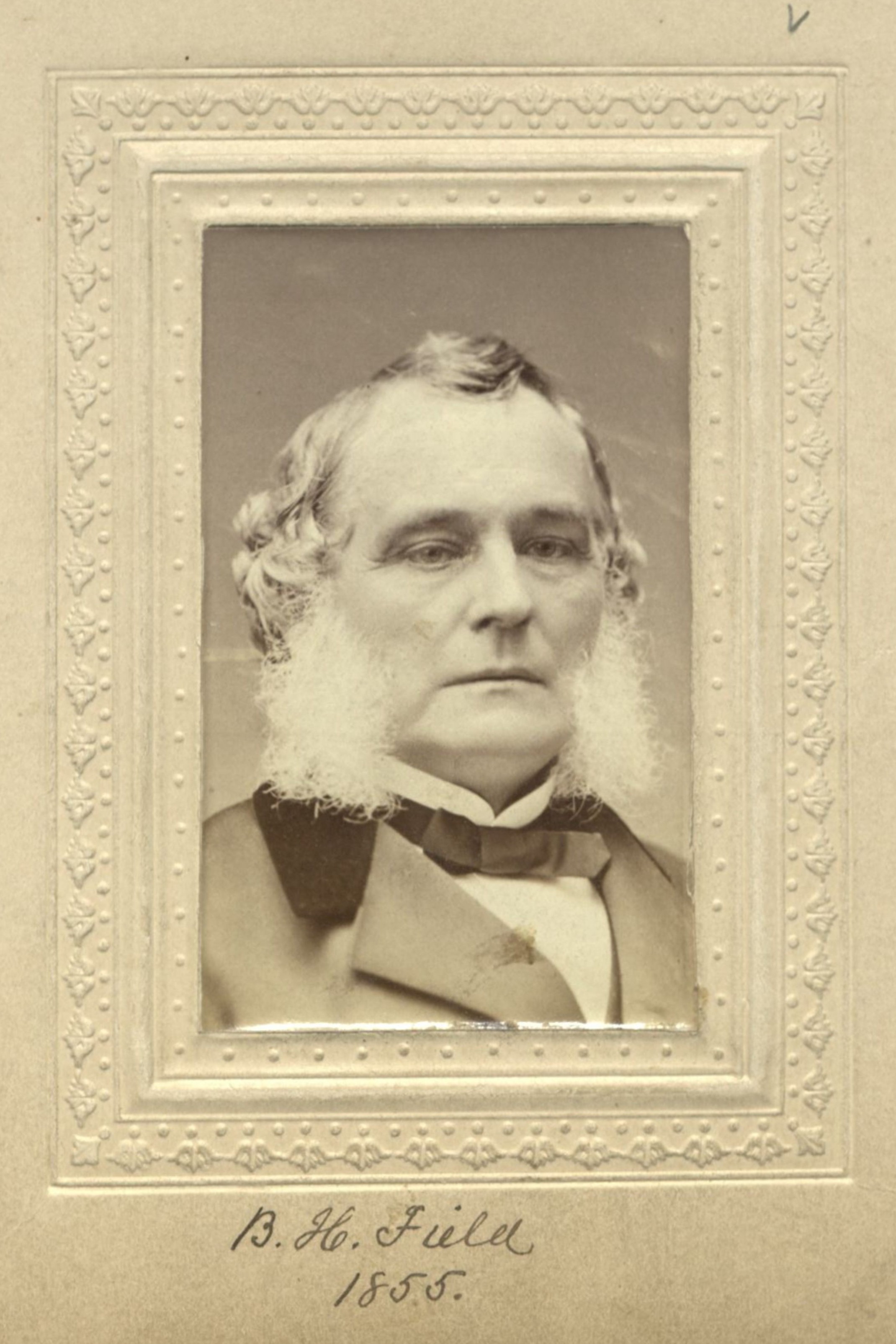Merchant/Philanthropist
Centurion, 1855–1893
Born 2 May 1814 in Yorktown Heights, New York
Died 17 March 1893 in New York (Manhattan), New York
Buried Green-Wood Cemetery , Brooklyn, New York
, Brooklyn, New York
Proposed by Augustus Schell
Elected 6 January 1855 at age forty
Archivist’s Note: Father-in-law of John E. Parsons
Proposer of:
Century Memorial
In the city of New York, so distinguished for its generosity in charitable work, there was no more earnest philanthropist than Benjamin H. Field. Activity in every institution for the relief of suffering or for the promotion of the welfare of his kind was as the breath of his life to him; and to such men as he the city owes its reputation for its prominence as the most generous municipality of the continent.
He came of distinguished English ancestry. He was born in 1814; was for many years one of the most successful merchants of the city; and having amassed a competent fortune, he retired from business, and devoted his time and his money most unselfishly for the public good.
An enumeration of the institutions of which he was either President or Trustee would include nearly all the prominent charities of the city. He expended nearly one hundred thousand dollars in establishing and maintaining a high school at Yorktown in this State, the place of his birth. He was the founder of the Home for Incurables, and its President from its origin until the time of his death. For more than twenty years he was never absent from the monthly meeting of its Board of Trustees. He was also President of the New York Eye and Ear Infirmary; of the Free Circulating Library and the Field Home; Vice President of the Bank for Savings in Bleecker Street; of the Society for the Prevention of Cruelty to Children; the Sheltering Arms and the Children’s Fold. He was a Trustee of the Working Woman’s Protective Union; Roosevelt Hospital; Greenwood Cemetery; the American Museum of Natural History; the New York Institution for the Instruction of the Deaf and Dumb, and the Good Samaritan Dispensary. In all, he was connected with more than twenty-seven institutions, not only in name, but as a most efficient supporter and active worker. He was an inspiration and example to every one to be diligent in well-doing, for the habit of giving seemed to grow with him with his years. His courtly presence, unfailing sweetness of temper, and the bounteous kindness of his heart, won him the affection and esteem of all who came in contact with him. “They serve God well who serve his creatures;” and who can doubt that in the life beyond, this good man has met the full measure of his reward.
Henry E. Howland
1894 Century Association Yearbook

